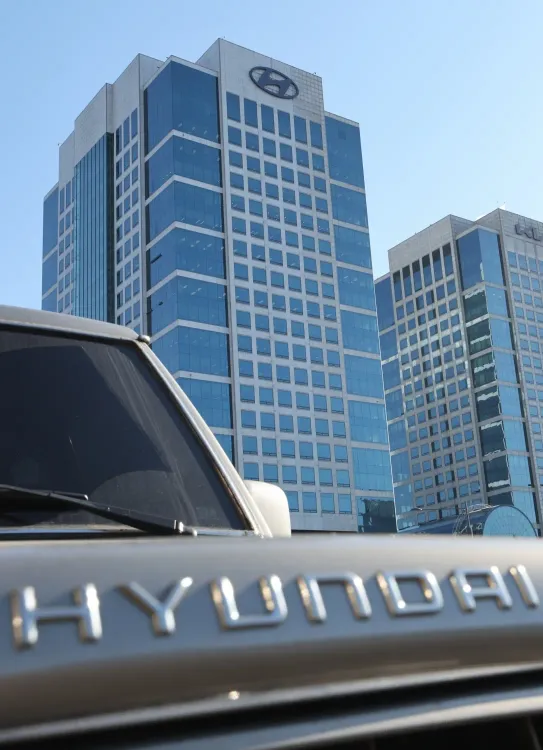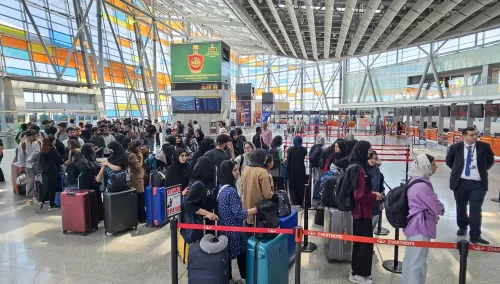What is Hyundai Motor's 2026 Strategy for Product Quality and Employee Growth?

Synopsis
Key Takeaways
- Hyundai's 2026 strategy prioritizes quality.
- Employee growth is a key focus area.
- Ambitious sales targets include 5.55 million vehicles by 2030.
- Electric vehicles will account for 60% of sales.
- Collaborations with tech firms are crucial for innovation.
Seoul, Nov 6 (NationPress) The Chief Executive Officer (CEO) of Hyundai Motor, Jose Munoz, highlighted the importance of product quality, strategic flexibility, and employee development as pivotal elements of the automaker's vision for 2026 during a recent town hall meeting with staff, the company announced on Thursday.
"As we look ahead to 2026 and beyond, our competitive edge will stem from the quality and safety of our offerings, our adaptive strategy across various powertrains and markets, and the dedication and talent of our workforce," Munoz stated in the meeting held on Wednesday at the company's headquarters in southern Seoul, as reported by Yonhap news agency.
Munoz expressed optimism about Hyundai's capacity to navigate the rapidly changing automotive landscape, remarking that the industry is transforming at an unprecedented pace.
During the meeting, Lee Yeong-ho, executive vice president and head of global operations, mentioned that Hyundai is responding to the increasing competition from Chinese manufacturers by offering differentiated service experiences, forging strategic financial partnerships, and enhancing its eco-friendly powertrain lineup.
Hyundai reaffirmed its ambitious target of reaching 5.55 million vehicle sales by 2030, with electric vehicles projected to make up 60 percent of total sales.
The company also highlighted the significance of partnerships with technology and mobility firms, indicating that these collaborations are paving the way for fresh opportunities.
Hyundai reported progress in collaborations with Waymo, a Google-affiliated company, and GM Co. on autonomous and jointly developed models, while its robotics initiatives continue to expand the company’s mobility ecosystem.
In related news, Naver announced on Thursday that it plans to invest over 1 trillion won (approximately $692.9 million) next year towards artificial intelligence (AI) infrastructure and aims to launch an AI agent across its key services, including shopping and search, as part of its ambition to become a leading player in the AI sector.
"Building on the solid foundation of Korea's core manufacturing sectors, such as semiconductors, automobiles, and batteries, we aim to accelerate AI transformation and innovation throughout all Korean industries by leveraging Naver's unmatched AI software capabilities," stated Choi Soo-yeon, CEO of Naver, during her keynote address at the annual tech conference, DAN25, held in southern Seoul.
"With our comprehensive AI technology capabilities, we aspire to aid Korea in becoming one of the top three AI powers globally," she concluded.










